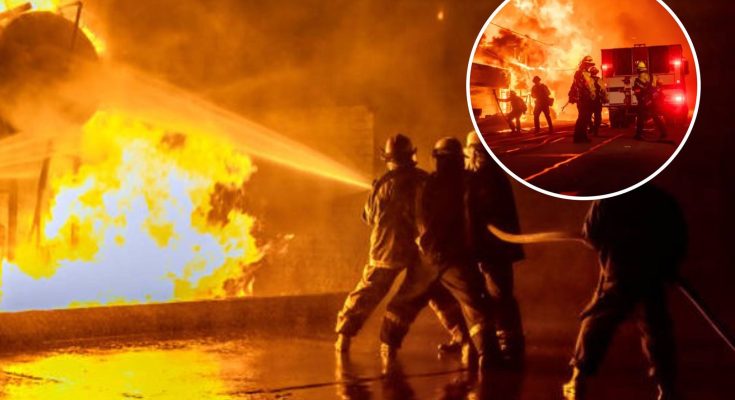Wildfires are an all-too-common crisis in Los Angeles, with vast areas of land scorched every year. When the flames threaten homes, wildlife, and entire communities, many people wonder why firefighters don’t simply turn to the vast Pacific Ocean nearby for water. At first glance, it seems like a no-brainer—the ocean provides an endless supply of water. But as logical as it sounds, using ocean water to battle wildfires isn’t practical for several crucial reasons.
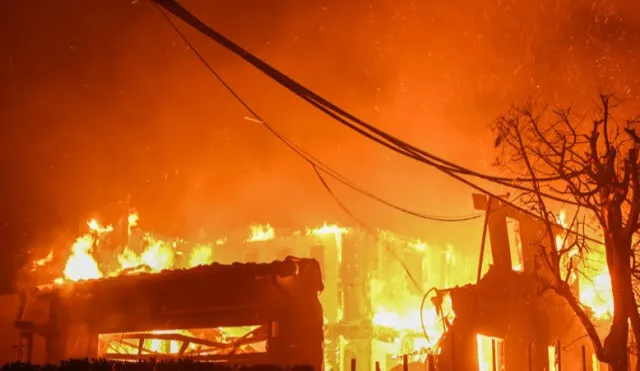
The Palisades Fire devastates large areas of Los Angeles County. Image Credit: Getty
The Scale and Challenges of LA Wildfires
Los Angeles wildfires, such as the recent Palisades Fire, highlight the magnitude of these disasters. The Palisades Fire burned over 17,000 acres, destroying vegetation, displacing wildlife, and threatening human lives. Firefighters face numerous challenges as they work tirelessly to contain multiple active blazes across the region.
With the city’s coastline just a stone’s throw away, people often ask why ocean water isn’t used to douse the flames. The answer lies in the science, logistics, and long-term environmental impact of using saltwater for firefighting.
Freshwater is Preferred Over Saltwater
While the ocean offers an abundant source of water, saltwater is far from ideal for firefighting. Freshwater, the standard in firefighting, is more effective for several important reasons:
- Saltwater Corrodes Equipment
Fire trucks, hoses, and other firefighting tools are designed to work with freshwater. Salt in ocean water is highly corrosive and can severely damage this equipment, leading to costly repairs and reduced effectiveness over time. Using saltwater repeatedly could compromise the reliability of essential firefighting tools, putting both firefighters and communities at greater risk. - Logistical Challenges
Transporting ocean water to wildfire sites is no small feat. Pumping, storing, and distributing saltwater would require entirely different infrastructure, adding complexity and delays to already time-sensitive operations. Firefighters rely on systems like hydrants and freshwater tanks that are readily accessible and optimized for firefighting efficiency.
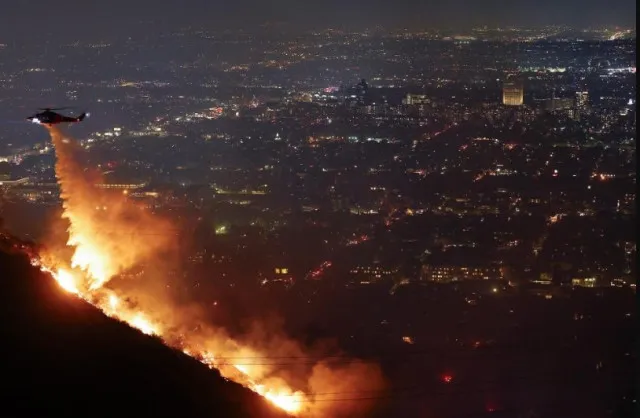
Firefighters face critical challenges in battling wildfires across the region. Image Credit: Getty
Saltwater Can Harm the Environment
Using saltwater to fight fires might extinguish the flames, but it can leave behind a trail of environmental damage:
- Soil Degradation
Saltwater can render soil infertile, preventing vegetation from growing back for years. This would not only impact the immediate area but could also harm ecosystems dependent on the land. By comparison, freshwater has a neutral impact on the environment and supports recovery after a wildfire. - Vegetation Damage
Saltwater damages plants, disrupting their ability to absorb water and nutrients. Wildfires already devastate ecosystems, and using saltwater would only compound the problem, leaving barren landscapes and making reforestation efforts more challenging.
Saltwater is Less Effective at Cooling Fires
A critical aspect of firefighting is cooling the flames to prevent them from reigniting. Freshwater is more efficient in this role because it cools surfaces rapidly. Salt in ocean water interferes with this cooling process, reducing its effectiveness. In a situation where every second counts, using a less effective method could allow fires to spread further, making containment even more difficult.
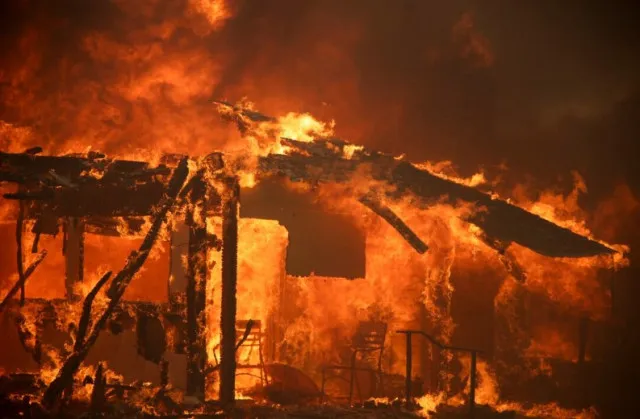
Image Credit: Getty
Firefighters Rely on Hydrants and Water Tanks
Most firefighting operations are built around the use of freshwater systems, including hydrants and tanks strategically placed across cities and rural areas. These systems are designed for rapid response, ensuring that firefighters have immediate access to water when battling a blaze.
Switching to ocean water would require a complete overhaul of these systems, from infrastructure to training. This transition would be costly, time-consuming, and impractical during an ongoing crisis. Sticking to freshwater ensures that firefighters can act quickly and effectively.
Addressing Water Supply Issues
During severe wildfire seasons, some fire hydrants in Los Angeles have run dry, raising concerns about the availability of freshwater. While this highlights the strain on resources during large-scale emergencies, city officials have worked to stabilize water supplies and improve infrastructure to support firefighting efforts. These measures ensure that firefighters can continue relying on freshwater without resorting to ocean water as a backup.
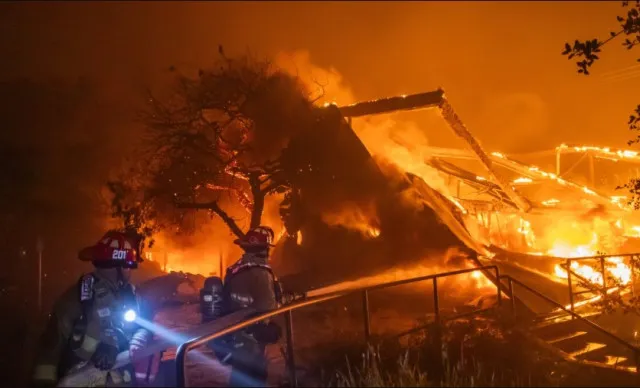
Saltwater can damage firefighting equipment and hinder performance over time. Image Credit: Getty
Conclusion
Although the Pacific Ocean offers an abundant water source, the challenges of using saltwater in firefighting far outweigh the benefits. From equipment corrosion to environmental harm and reduced effectiveness, saltwater introduces a host of problems that make it unsuitable for battling wildfires. Freshwater remains the best and most practical option, supported by existing infrastructure and proven efficiency.
Firefighters in Los Angeles face an immense challenge as they work to contain devastating wildfires. By focusing on effective methods and sustainable practices, they ensure the safety of communities while minimizing long-term environmental damage. The next time you see firefighters battling flames, remember that their choice of water is about more than convenience—it’s about using the best tools to protect lives and landscapes.
